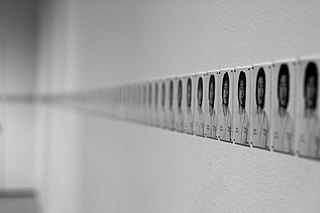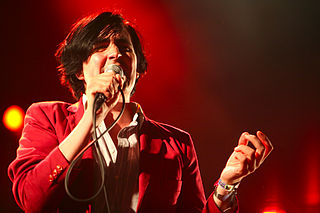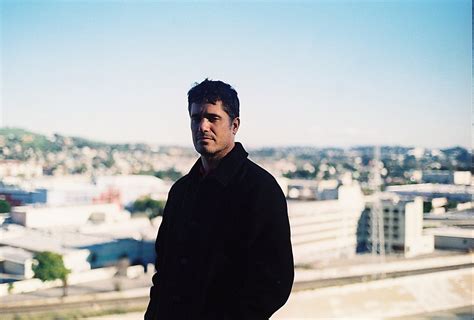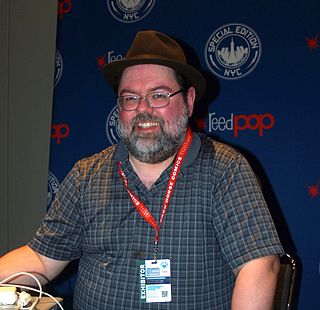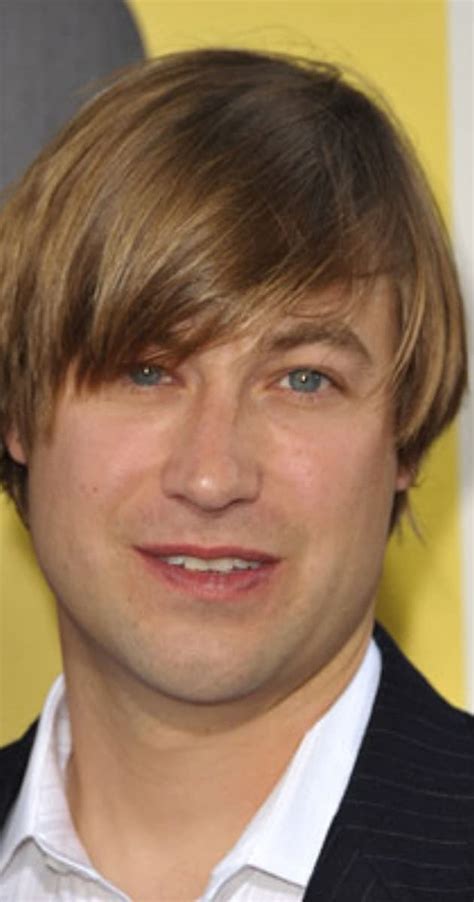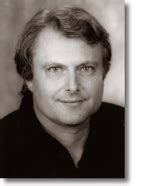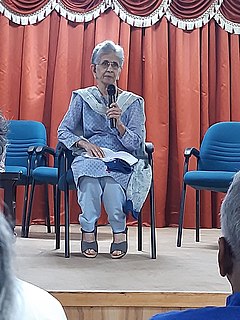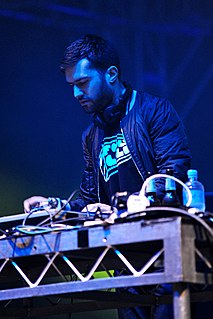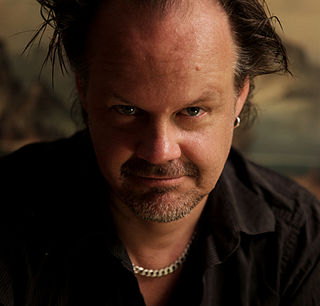Top 689 Outsider Quotes & Sayings - Page 12
Explore popular Outsider quotes.
Last updated on November 12, 2024.
I've always just felt like an outsider. I've always been made fun of in school ever since kindergarten. For me, when I started singing, that's when I started making "friends,". That's when people started taking an interest in me. That was the thing that made me likable, I guess. Maybe even lovable! I think that's really why I'm so hellbent on doing this as a career is because those are the moments where I felt at my most confident.
The essence of love and compassion is understanding, the ability to recognize the physical, material, and psychological suffering of others, to put ourselves "inside the skin" of the other. We "go inside" their body, feelings, and mental formations, and witness for ourselves their suffering. Shallow observation as an outsider is not enough to see their suffering. We must become one with the subject of our observation. When we are in contact with another's suffering, a feeling of compassion is born in us. Compassion means, literally, "to suffer with."
I know I am a human being. I can give myself to one year for a project. That is why I say I'm primitive in the way I work, especially compared to most artists. I came to New York in 1974, knowing that it is the art center of the world. But I didn't go to find people for my work. I do the work, and the people come to me, and I learn from them. That has always been my approach - to do the job first and then to respond to it after I finish and learn what people think about it. That's how I develop, and I'm more of an outsider in that way.
The only thing I collect is art. I collect it because I like looking at it. A lot of it is really personal stuff that my friends have made, paintings that my husband's mother made, and things that I bought. I buy abstract art on eBay, and I buy some outsider art on eBay, or what is called folk art, I buy a lot of. I have a lot of professional art work as well as more stuff my friends' kids make. To have a wall of art to look at, I feel really surrounded by love, because so much of the work is related to my friendships.
I believe a good writer can write a good book with any sort of character, in any sort of setting, but I prefer to write about the outsider. It might just be because I've been one (or perceived myself to be one) for so much of my life. But the simple fact of being marginalized immediately brings conflict to a story before the narrative even begins, and that's gold for a writer because it means that your character already has depth before events begin to unfold.
I'm seeing myself as an outsider a little bit - definitely when I started the band. I knew what band's name meant and nobody else really did, so I'd be on stage every night and say, "Hello, we're Art Brut" - basically saying that we were rejects. But I mean, I didn't really sing, it did feel a bit like we were outsiders. It was a bit tongue-in-cheek when I first named the band that, but then we slowly turned into that - like a self-fulfilling prophecy.
Punk can be a mental ghetto. People get into it and make all these rules and pretty soon they're worse than born again Christians and have stupid three hour conversation about things like, which band is a sellout and is straight edge cool or un-cool and it's just completely idiotic. So punk has taught me the aesthetic of the outsider, which is great, but it's also taught me not to get involved in petty little cults.
Because I was a chemistry student and was never supposed to be a musician, I always felt like I was an outsider looking at music going "Why is this interesting to me? Why should I be doing this?" and I never felt like I was a natural musician. It came into my life, kind of, as a conceptual problem and I think all my pieces are, in a way, looking at some issue and sometimes veering toward an inside baseball model of classical music.
Historically different groups find different things in each comics, as with *X-Men*. Gay readers find parallels to living a closeted lifestyle or choosing to come out and be openly gay. Black readers find a relevance to their lives growing up in America as a black guy. Picked-on brainy kids find a metaphor for being an outsider. It's a simple enough, and direct enough metaphor that it has different shades for different people. And so each reader to some degree gets out of it what they bring to it. That's one of the things I think that makes *X-Men* such a strong property.
Caesar [from the Rise of the Planet of the Apes] was brought up with human beings and because of the drug he had pretty much grown up with his whole life, he felt like an outsider, he felt trapped in an ape's body but he didn't really feel like an ape and that was my way into the character. So he's always had this duality playing him from an infant all the way to now as a fifty-five year old ape.
I think that one not only has to make demands on the established group, but one also has to make demands on the outsider group. One has to make clear: if you want to leave, please do so. But if you want to stay here, a degree of accommodation to the Dutch outlook, Dutch manners, and a degree of identification with the Netherlands will be expected of you. There is no reason why there cannot be Dutch Turks or Dutch Moroccans. But one can expect from them a degree of identification, some change of their own social identity.
Early in my career I was divided because I had the real self underneath: the lawbreaker, the anarchist, the person who swims against the tide, the outsider, the loner, all of that guy. He was my private self, and I had this other side that wanted to be liked in order to do all those things I dreamed of as a little boy. I didn't realize that those things didn't go together until later. And I'm quite sure that my use of acid and peyote helped me accept what was really going on inside of me instead of what I had imposed on myself.
Obviously there are many, many ways of being an outsider, but having immigrant parents is one of them. For one thing, it makes you a translator: there are all kinds of things that American parents know about life in America ,and about being a kid in America, that non-American parents don't know, and in many cases it falls on the kid to tell them, and also to field questions from Americans about their parents' native country.
I have always liked kind of outsider characters. In the movies I grew up liking, you had more complicated characters. I don't mean that in a way that makes us better or anything. I just seem to like characters who don't really fit into. You always hear that from the studio: "You have to be able to root for them, they have to be likeable, and the audience has to be able to see themselves in the characters." I feel that's not necessarily true. As long as the character has some type of goal or outlook on the world, or perspective, you can follow that story.
I didn't feel that so much as an outsider when I started writing; I've felt that way all my life. I don't know, man; I guess I was just wired wrong. When I was growing up, I always wanted to be somebody else and live somewhere else. I've always felt a little uncomfortable around people. And I'm not trying to romanticize this, because it wasn't romantic. I wasn't trying to be a rebel; I just always felt a little out of it. I think that's why it's pretty easy for me to identify with people living on the margins.
There's a kind of edge to what you're doing, the kind of leading edge of what you're doing. Inside that edge [are elements you] are familiar with, and are probably becoming slightly bored with, as well, over a period of time. "I've pulled that one out before. Oh, no, I can't I'm just fed up with that. Let's do something else."And you always think "Oh my God I've never done anything at all like that before." But, of course, in retrospect, and to an outsider, they'll say, "Oh, yeah that's typical Eno.
I've always been an ironic dreamer, unfaithful to my inner promises. Like a complete outsider, a casual observer of whom I thought I was, I've always enjoyed watching my daydreams go down in defeat. I was never convinced of what I believed in. I filled my hands with sand, called it gold, and opened them up to let it slide through. Words were my only truth. When the right words were said, all was done; the rest was the sand that had always been.
As Colin Wilson has written, "modern civilisation, with its mechanised rigidity is producing more outsiders than ever before-people who are too intelligent to do some repetitive job, but not intelligent enough to make their own terms with society." Those "intelligent enough" to make their own terms with society are what we will later refer to as artists of life. The outsider views himself as a product of a culture he rejects-the artist views himself as a culture-builder.
Marriage is a very strange thing. It's a very public institution, it's meant to tell the world that two people are going to live together, to declare that their children will be legal, that these children can inherit their property. It's meant for social living, to ensure that some rules are observed, so that men and women don't cross the lines drawn from them. At the same time, marriage is an intensely private affair, no outsider will know the state of some one else's marriage. It's a closed room, a locked room...
At the end of the day, if I do a set at a festival and I only have an hour, which is kind of short for a DJ set, I know that I have to play at least six of my songs. Then the whole challenge is what do I weave around that. How do I stand out? Because at a festival there's probably fifteen songs every DJ's going to play every hour, for the whole day. That to me is more interesting, because I still feel like an outsider in this world.
Very often people who live in a ghetto accept some of the stigmatisation against them. I mention the case of a Japanese minority the Burakumin, which was pure Japanese in descent, but which was concerned with dirty work: leather work, cadavers, and some other things.There was a famous story of an old man who asked: 'Do you yourself believe you are the same as the Japanese?' And the outsider said: 'I do not know, we are dirty.' This kind of conscience was never there in the surroundings in which I lived. One always felt as someone whom could be proud of, being both German and Jewish.
Race doesn't mean what it used to in America anymore. It just doesn't. Obama's black, but he's not black the way people used to define that. Is black your experience or the color of your skin? My experience is as a Mexican immigrant, more so than someone like George Lopez. He's from California. But he'll be treated as an immigrant. I am an outsider. My abuelita, my grandmother, didn't speak English. My whole family on my dad's side is in Mexico. I won't ever be called that or treated that way, but it was my experience.
My new single 'I'm Gonna show you crazy' is really about knowing it's okay to not be okay. It's not about being legit crazy it's about feeling like you're an outsider and there's nothing wrong with that. I was bitter during that time in my life but I needed that. It helped shaped me and my music. Going through a hard time makes you a better person. Going through hell those two years was worth it.
Once again she would arrive at a foreign place. Once again be the newcomer, an outsider, the one who did not belong. She knew from experience that she would quickly have to ingratiate herself with her new masters to avoid being rejected or, in more dire cases, punished. Then there would be the phase where she would have to sharpen her senses in order to see and hear as acutely as possible so that she could assimilate quickly all the new customs and the words most frequently used by the group she was to become a part of--so that finally, she would be judged on her own merits.
My biggest inspiration is black America and what they've done in the arts. I have always felt like an outsider in America, and what black Americans have done to add their chapter to this book called the American dream, and to be so unapologetic and true, and have added so much to art and culture in the world. Some of the greatest inspirations in my life have been black Americans. And I just wanted to say thank you. They've been a huge inspiration, to myself and this country.
Stick on this that Donald Trump as the outsider doesn't know what's going on. That the inside-the-Beltway culture is special and it's so unique and it's so tiny that nobody that's not part of it could ever, ever function. Nobody who's not in the establishment could possibly understand it. So they have an arrogance that leads to a condescension against people, which leads the inside-the-Beltway, the establishment, both parties, to think of Trump as no different than his voters, a bumpkin idiot.
I always loved horror as a kid. On the one hand, I really love monsters, because in a way I feel like I related to their outsider status and like the sentimental romantic plight of the monster. More importantly though I feel like people are completely motivated by fear, especially with our political system here in America which is just degenerating into more and more fear mongering and it gets in the way of real discourse, plus it's just something I'm obsessive about and have always been a little bit of a paranoid guy.
Everything I loved had been dead for two centuries - or, as in the case of Graeco-Roman classicism, for two milenniums. I am never a part of anything around me - in everything I am an outsider. Should I find it possible to crawl backward through the Halls of Time to that age which is nearest my own fancy, I should doubtless be bawled out of the coffee-houses for heresy in religion, or else lampooned by John Dennis till I found refuge in the deep, silent Thames, that covers many another unfortunate.


